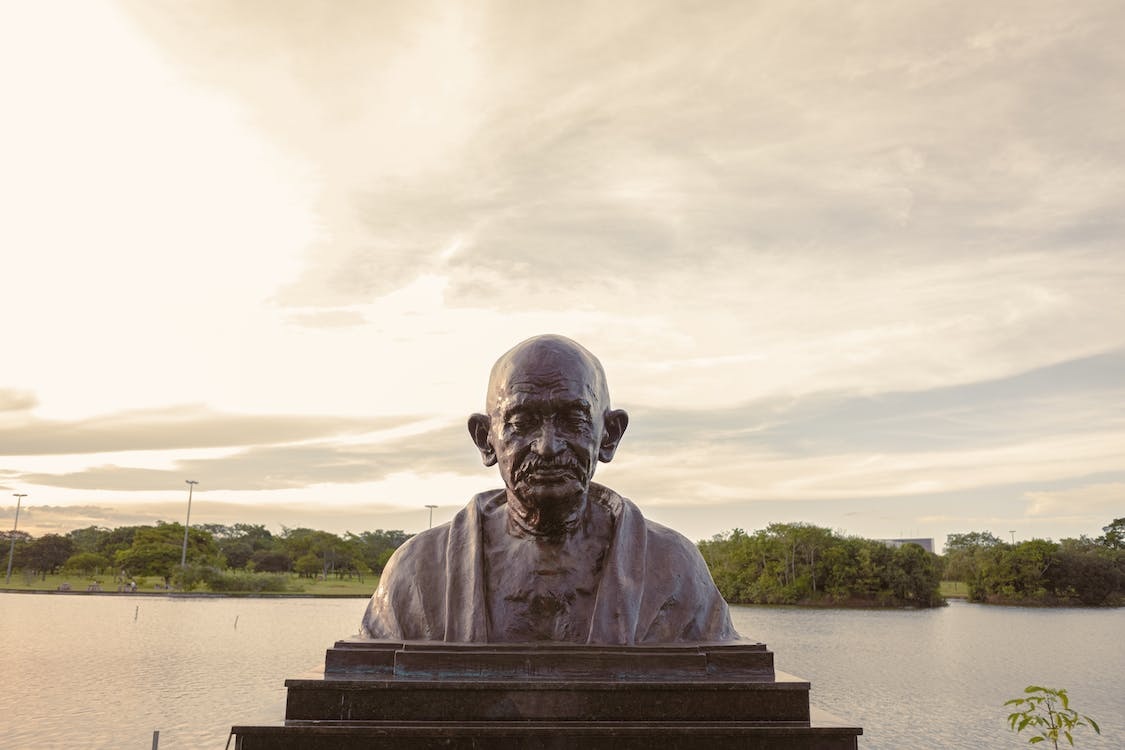Mahatma Gandhi: The Apostle of Nonviolent Resistance
Mahatma Gandhi, a name that reverberates through history as a symbol of nonviolent resistance and transformative leadership. Born on October 2, 1869, in Porbandar, India, Gandhi emerged as a charismatic leader and a staunch advocate for India’s independence from British colonial rule. His life and philosophy of truth, nonviolence, and self-reliance continue to inspire generations around the world.
Gandhi’s early life was marked by a modest upbringing and a penchant for learning. After studying law in London, he moved to South Africa, where he encountered racial discrimination firsthand. This experience awakened his sense of social justice and sowed the seeds of his philosophy of nonviolent protest, or Satyagraha. Gandhi believed that individuals could challenge oppressive regimes through peaceful means, emphasizing the power of truth and moral force over violence.
Returning to India, Gandhi’s leadership took center stage during the struggle for independence. He initiated various movements, advocating civil disobedience, boycotts, and strikes to peacefully resist British policies. One of his most significant endeavors was the Salt March in 1930, a 240-mile march to the Arabian Sea to protest the British salt tax. This event showcased his unwavering commitment to nonviolence and galvanized millions of Indians to join the fight for freedom.
Gandhi’s philosophy of nonviolence, or Ahimsa, extended beyond political struggles. He believed in the interconnectedness of all living beings and the importance of treating others with respect and compassion. This philosophy influenced his dietary choices (he was a vegetarian), his simple lifestyle, and his emphasis on self-discipline and self-improvement. He famously said, “Be the change that you wish to see in the world,” inspiring people to start with personal transformation to create a better society.
Gandhi’s leadership extended beyond India’s borders. His ideas inspired movements for civil rights and freedom around the world, including the American civil rights movement led by Martin Luther King Jr. Gandhi’s nonviolent methods proved that change could be achieved without bloodshed, and his teachings resonated with those seeking justice and equality.
However, Gandhi’s legacy wasn’t without controversy. His efforts to bridge Hindu-Muslim divides were met with challenges, and he struggled with the communal violence that erupted during the partition of India in 1947. Despite these challenges, his commitment to nonviolence and his ability to influence change through peaceful means remain his enduring legacy.
On January 30, 1948, Gandhi was assassinated by a Hindu extremist who opposed his views on interfaith harmony. His physical presence may have been lost, but his teachings continue to shape the world. Gandhi’s philosophy continues to inspire movements for social justice, human rights, and peace.
In conclusion, Mahatma Gandhi’s life and philosophy stand as a testament to the power of nonviolent resistance and the ability of an individual to effect monumental change. His principles of truth, nonviolence, and self-discipline remain relevant in today’s world, reminding us that the pursuit of justice and equality can be achieved through peaceful means. As we reflect on his legacy, let us draw inspiration from his life and continue working towards a world where truth and love triumph over hatred and violence.

